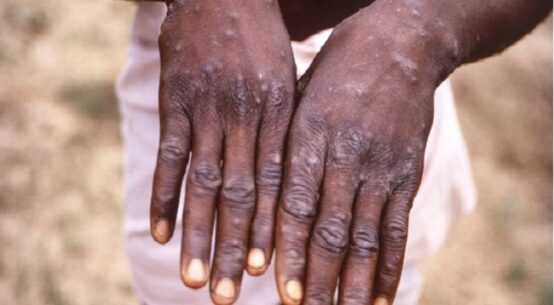Yesterday, 11 August was Balochistan’s 75th Independence Day from the British Raj. Unfortunately, the newly born Pakistan in seven months forcibly occupied the nation-state and made it into an impoverished province.
Since then the fiercest Baloch have waged armed struggle to liberate their lost territory.
Akbar Shahbaz Khan Bugti or Nawab Bugti, a defiant Baloch nationalist, was murdered by the Pakistan Army on orders of Pakistan’s President General Pervez Musharraf on 26 August 2006.
Nawab Bugti, born in 1927, chieftain of the rebellious Bugti tribe, was the tallest Baloch leader who was the federal minister, governor, and chief minister of Balochistan.
Armed militants of the Marri and Bugti tribes, the fiercest tribes, waged armed struggles and politically challenged the forcible inclusion of the resource-rich province into Pakistan in March 1948.
Nawab Bugti was assassinated in a military raid ordered by General Musharraf. In a fierce battle with militants, Bugti’s fortified cave in Bhamboor hills fell after the helicopter gunship fired volleys of missiles into the fortified cave, killing him and his brother, grandson, and others.
Musharraf was formally charged by an anti-terrorism court and then acquitted by a Pakistan court in Bugti’s assassination. His death sparked a countrywide anti-Pakistan protest by Baloch students and youths. Police had to quell ethnic riots in different cities and towns across Pakistan.
Balochistan is mostly populated by ethnic Baloch, as well as Pakhtuns or Pashtuns. It is the least populated region, and also the largest province of Pakistan.
For decades, disgruntled Baloch people have been protesting the forcible conversion of the Baloch population into a minority in their homeland.
Since the death of Bugti, the restive Balochistan has experienced appalling human rights abuse and enforced brutal tools to silence the independence movement.
Anybody, anytime, whoever speaks up, protests, or partisan raises the violation of civil rights in Balochistan, the next day a dissident or a partisan’s dead body would be dumped into the village or town to warn off the consequences of challenging the state.
Journalists who have published about Balochistan’s issues faced violent backlash from the state security apparatus. The politicians and other professional bodies are tight-lipped on the status of rights in the region.
Few media, intellectuals and rights groups have raised the issue, but it fell into deaf years of military hawks in Rawalpindi and their master-voice governments installed in Islamabad.
The United Nations, the International Court of Justice, and human rights organisations may not be able to fathom the plight of the families of the missing persons. Baloch mothers, sisters, widows, and their children are suffering from severe spiritual and mental distress.
Military hawks in Pakistan envisage eradicating ethnic identities by changing provincial demographics and pursuing Islamisation, or the substitution of a common Sunni Muslim identity for ethnic ones.
At the end of the 1970s, Balochistan became one of the two focal points of the dictator’s Islamisation strategy (the other being the North-West Frontier Province, now Khyber-Pakhtunkhwa).
The period between the end of the Bhutto regime and the military dictator General Pervez Musharraf witnessed major developments in the Balochistan policy. Zia-ul-Haq used Islamisation as a weapon against the insurgency in Balochistan, said Frederic Grare in his research publication Balochistan: The State Versus the Nation.
In 1970, when Bangabandhu Sheikh Mujibur Rahman was on a whirlwind tour for the election campaign in Karachi, Lahore, Peshawar, and Quetta – he was given a tumultuous welcome, said Zahirul Islam Khan Panna.
Z I Khan Panna, a leading human rights lawyer in Bangladesh, was a law student at Karachi University and was hand-picked by Bangabandhu to be his fixer for the election campaign in Pakistan.
Panna met Nawab Bugti in Karachi in June 1970, and handed over an English copy of the Six-Point Agenda, as desired by Sheikh Mujib.
Bugti was indeed a great admirer of Mujib and told his Baloch nationalist leaders that the Six-Point was a Bible to resolve the longstanding deprivation and political neglect of Balochistan.
Sher Mohammad Bugti, spokesperson of the Baloch Republican Party (BRP) spoke from Geneva, where he and BRP’s key leaders are living in exile. He lamented that the “Balochistan atrocity is worse than Bangladesh” in 1971, which was perpetrated by the marauding Pakistan military.
Baloch nationalists are fighting on two fronts, he said. One is Pakistan and the second is China. The Chinese Communist Party is singing the same tune as Pakistan on the Baloch issue of the mega Belt and Road Initiative (BRI) and Gwadar Port, which is located in Balochistan.
Bugti’s party senior leaders urged Indian Prime Minister Narendra Modi to support their cause and help bifurcate Balochistan from the hawks of Pakistan – like Indira Gandhi helped Bangladesh in 1971.
Brahamdagh Bugti, the grandson of the slain Baloch leader Nawab Akbar Khan Bugti is presently the president of BRP. He rejected the possibility of holding any negotiations with Pakistan authorities, suggesting an internationally supervised referendum in Balochistan to bury the crisis once and for all.
Saleem Samad is an independent journalist, media rights defender, and recipient of the Ashoka Fellowship and Hellman-Hammett Award. He can be reached at saleemsamad@hotmail.com; Twitter @saleemsamad

